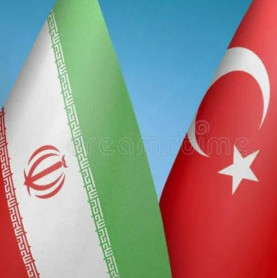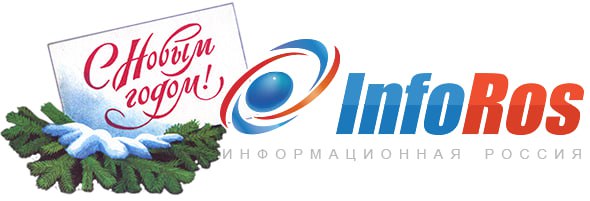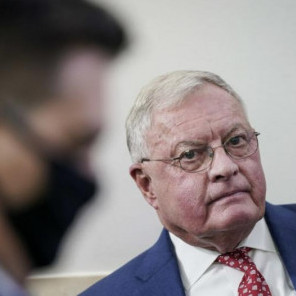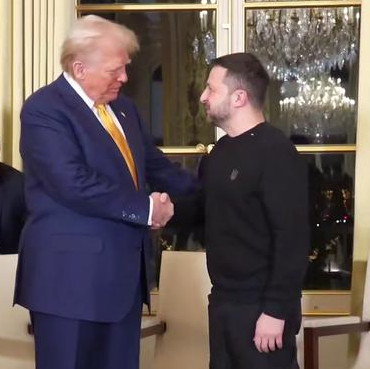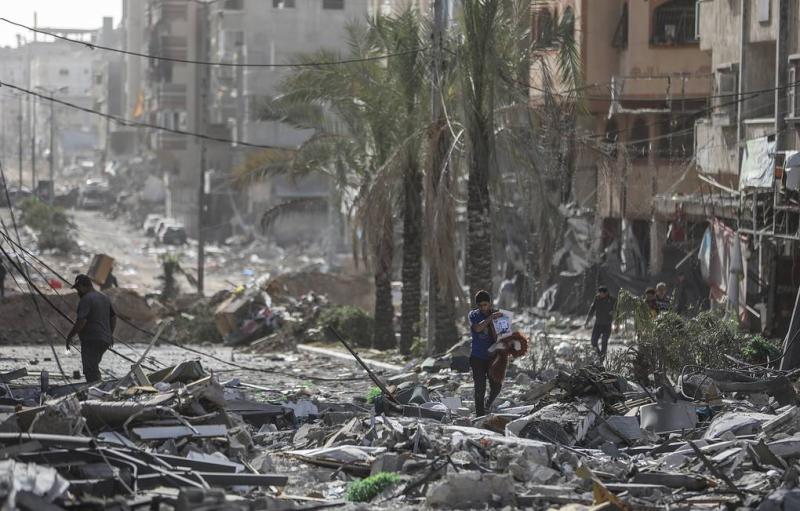
The prospect of a lasting ceasefire in Gaza remains uncertain amid lingering concerns over the Hamas-Israel deal; the UK and Ukraine have signed a century-long partnership agreement; and Russia has engaged in discussions on key cooperation priorities with the Central African Republic. These stories topped Friday’s newspaper headlines across Russia, according to TASS news agency.
Vedomosti: Will Hamas-Israel accord lead to actual ceasefire in Gaza
Israel alleged that the Palestinian movement Hamas was attempting to undermine the ceasefire agreement in the Gaza Strip and the exchange of hostages, thereby blocking the finalization of the truce, according to a statement from the office of Israeli Prime Minister Benjamin Netanyahu, Vedomosti reports. The statement said the Israeli side would not schedule a cabinet meeting to approve the deal until the mediators (the US, Egypt, and Qatar) verify that the Islamists accept all terms of the agreement. Hamas politburo member Izzat al-Rasheq denied these accusations, asserting that the movement intends to honor the ceasefire agreement.
The Israeli claims surfaced shortly after the Jewish state and Hamas brokered a ceasefire deal in Gaza, mediated by the United States, Egypt, and Qatar. Following the agreement, one of Hamas’ leaders, Khalil al-Hayya, described the truce as a setback for the Jewish state. In contrast, far-right Israeli ministers Bezalel Smotrich and Itamar Ben-Gvir criticized the deal, threatening to leave the government if the war ends.
The chances of a political crisis in Israel over the agreement with Hamas are quite significant, research fellow at the Center for Middle East Studies at the Institute of World Economy and International Relations Lyudmila Samarskaya said in an interview with Vedomosti. On the one hand, the right-wing factions are keen to maintain a coalition with Netanyahu, as it is unlikely these parties could join another government. On the other hand, if Israel halts its military operations, they risk losing part of their voter base, the expert explained. "This is why the right is applying pressure on Netanyahu. Simultaneously, for the sake of a deal with Hamas, the opposition is prepared to support the current government even if the right withdraws," she stated.
Given the current dynamics, the prospect of a long-term ceasefire in Gaza remains slim, Ivan Bocharov, program coordinator at the Russian International Affairs Council, told the newspaper. He anticipates potential violations of the truce by both the Israeli military and Palestinian factions. Furthermore, the agreement fails to address the issue of post-war governance in Gaza. Without a viable alternative to Hamas’ control in Gaza, it is challenging to envision how Israel’s security concerns will be adequately resolved, Samarskaya concurred.
Izvestia: UK pledges support for Ukraine with ambitious 100-year partnership
UK Prime Minister Keir Starmer visited Kiev on January 16, where he signed an agreement establishing a century-long partnership between the two nations. London committed to providing Ukraine with additional arms and ongoing training for its soldiers in the UK. However, experts suggest that Starmer’s visit was aimed at laying the groundwork for inevitable shifts in policy towards Ukraine following Donald Trump’s return to power, Izvestia reports. They observed that the agreement primarily focuses on the post-war reconstruction of Ukraine and was crafted with UK business interests in mind.
At a press conference, Starmer confirmed that, under the agreement, the UK would provide Kiev with a state-of-the-art mobile air defense system. He clarified that London and Kiev would collaborate on strategies to ensure Ukraine’s security once the conflict concludes. To bolster Ukraine’s front lines, a loan exceeding $2 million will be extended, which will be repaid using earnings from interest accrued on frozen Russian assets.
Given that the total US military aid to Ukraine exceeds $66 bln, while the UK has contributed around $16 bln, it is clear that London cannot singlehandedly bear the brunt of military assistance, military expert and junior research fellow at the Institute of World Economy and International Relations Vadim Koroshchupov remarked.
Starmer appears eager to align with other European leaders and their proactive steps in preparation for Trump’s likely inauguration, senior research fellow at the Institute of International Studies at MGIMO Kira Godovanyuk told Izvestia.
"He aims to reaffirm the importance of Ukraine to London’s foreign policy and seeks to preserve the UK’s influence in Ukraine in some capacity ahead of any potential negotiated agreements. The lofty name of the agreement serves as a PR strategy to underscore the strategic value of Ukraine to UK diplomacy," she explained.
The agreement’s specifics suggest a significant emphasis on Ukraine’s future recovery phase, with London strategizing on how to safeguard its interests. "This is about protecting their own business priorities, particularly regarding deals related to key natural resources, including grain exports. Starmer’s foreign policy focus is ultimately driven by the need to address domestic socio-economic challenges," Godovanyuk added.
Izvestia: Central African Republic President Touadera visits Moscow to strengthen ties with Russia
The Central African Republic (CAR) aims to combat terrorism on its territory with Russia’s assistance. During talks between Presidents Vladimir Putin and Faustin-Archange Touadera, the Russian leader stated that Moscow remains committed to providing humanitarian aid to the CAR, noting that bilateral trade volume grew eightfold in 2024. Experts interviewed by Izvestia suggested that the discussions likely addressed security issues, particularly in light of the leadership changes in Syria, where a Russian military base is stationed.
The talks were conducted in two phases: first, with delegations from both countries present, followed by a private meeting between Putin and Touadera. Putin also announced the signing of new agreements aimed at strengthening bilateral cooperation. Analysts speculate these agreements may focus on enhancing economic ties between Russia and the CAR. Africa is particularly interested in Russian technologies and industrial goods, including domestically manufactured vehicles, Deputy Director of the Institute for Strategic Studies and Forecasts at RUDN University, Evgeny Semibratov, told Izvestia. For its part, Russia is drawn to opportunities in developing the CAR’s reserves of gold, oil, uranium, and diamonds.
"Potentially, the topic of deeper cooperation between the CAR and BRICS could have been discussed, as this group is rapidly expanding its influence on the African continent and gaining new partners. Furthermore, Africa is keen to bolster its food security with Russian support. Russia, in turn, is a leading global exporter of wheat and other agricultural products," Semibratov noted.
The discussion may also have included plans for further humanitarian aid. Touadera expressed gratitude to Putin for the previous deliveries of grain and fuel. Additionally, Russia and the CAR continue to collaborate on security matters.
"It’s likely that the recent developments in Syria, particularly following Bashar al-Assad’s departure, were part of the conversation. Russian military experts have played a key role in CAR’s security since the late 2010s, serving as instructors and training the CAR army. Moreover, Russian military operations in Africa have often relied on airbases in Syria. The CAR likely sought to clarify the priorities, prospects, and strategic goals of its security partnership with Russia," Deputy Director of the HSE Center for African Studies Vsevolod Sviridov told Izvestia.
Nezavisimaya Gazeta: Iran-Russia agreement focuses on economic ties, avoids military commitments
On Friday, January 17, Russian President Vladimir Putin will meet with his Iranian counterpart Masoud Pezeshkian in Moscow. The meeting is expected to culminate in the signing of a landmark agreement on a comprehensive strategic partnership between the two nations, which has been in the works for several years. This move is intended to signal to Washington that Russia and Iran are determined to strengthen their collaboration despite escalating Western sanctions, Nezavisimaya Gazeta writes. While the deal has drawn comparisons to Russia’s agreement with North Korea, the Iranian Foreign Ministry has clarified that the Russian-Iranian pact will not involve defense-related obligations.
Ahead of the Iranian president’s visit to Russia, Iranian Foreign Minister Abbas Araghchi outlined three key areas for potential growth following the agreement: economic development, scientific and technical collaboration, and cultural and humanitarian exchanges. The 20-year pact comprises 47 points, covering cooperation in electricity production and exports, tourism development, and efforts to boost trade volumes.
"This is largely a framework agreement, despite its wide-ranging scope. It addresses numerous areas - from agriculture to space collaboration. However, specific agreements will need to be developed separately in the future. I don’t anticipate significant shifts in the dynamics between Moscow and Tehran, as both allies face a host of challenges themselves," professor and senior researcher at the Institute of Oriental Studies of the Russian Academy of Sciences Vladimir Sazhin said in an interview with Nezavisimaya Gazeta.
The expert identified two key areas where deeper cooperation could be expected: the development of the North-South transport corridor and the potential supply of Russian gas through Iran. In the military sphere, while collaboration exists, it does not approach the level of Russia-North Korea relations.
"This agreement is likely, in part, a strategic message to the new US administration. Moscow and Tehran are signaling their unity and resilience against Western pressure, despite sanctions and Iran’s diminished standing in the Middle East," Sazhin observed.
Vedomosti: Rising global temperatures could boost Russia’s economy
The year 2024 was the warmest on record since instrumental observations began in 1850, according to Roman Vilfand, scientific director of the Russian Hydrometeorological Center. The planet’s average annual temperature last year reached 15.1 degrees Celsius, marking the second consecutive year of rising temperatures, which has alarmed climatologists, Vilfand noted. However, these rising temperatures may surprisingly hold some economic benefits for Russia’s GDP, Vedomosti writes.
On July 22, 2024, the global daily average temperature hit a record-breaking 17.16 degrees Celsius, Vilfand reported. This figure surpasses pre-industrial levels by 1.6 degrees Celsius, he emphasized. Under the Paris Agreement, global temperatures are not supposed to exceed 1.5 degrees Celsius above pre-industrial levels by the end of the century, but Vilfand warned that this target is already being breached.
While the negative consequences of global warming for Russia - such as droughts, wildfires, and floods - are undeniable, certain climate shifts may also drive positive economic impacts, according to Alexander Shirov, Director of the Institute of Economic Forecasting at the Russian Academy of Sciences.
For instance, Russia’s annual gross domestic product (GDP) could grow by 1.2 trillion rubles ($11.58 bln), or 0.7% of 2023 GDP, if the country’s average annual temperature increases by 1 degrees Celsius, according to a report by the Institute of Economic Forecasting. Currently, the average rate of warming in Russia is 0.2 degrees Celsius per decade, Vilfand explained.
Key beneficiaries of a 1 degrees Celsius warming include agriculture and the development of the Northern Sea Route, the report stated. However, with further warming, Russia’s agricultural productivity zone will shift northward, moving from the southern Krasnodar and Rostov regions to more northern territories, Shirov added.
TASS is not responsible for the material quoted in these press reviews

